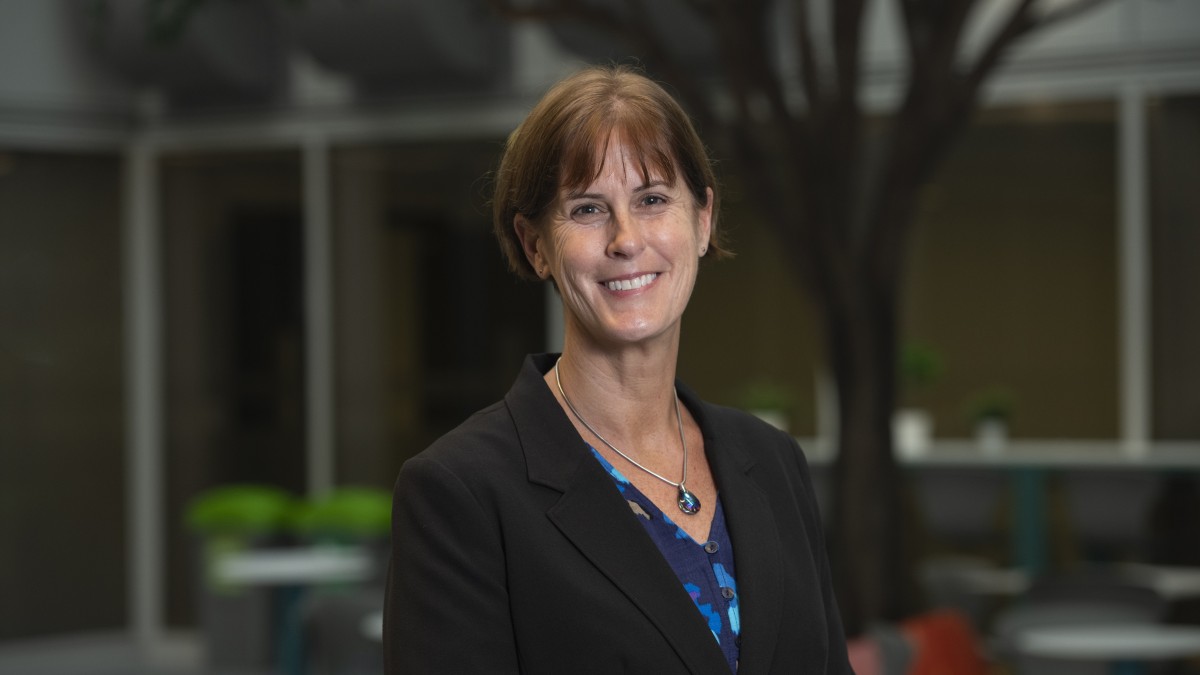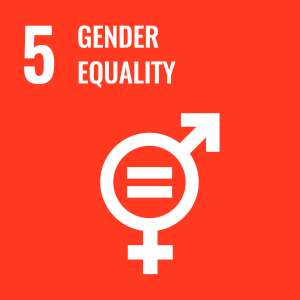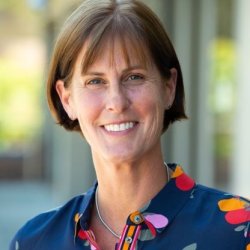From Surrey student to CEO: Meet Dr Alison Callwood
Dr Alison Callwood is on a mission to level the playing field when it comes to recruitment. The multiple awards she's received are testament to her success, but her passion to make a difference remains her driving force. We asked her how it feels to be a changemaker in the disability and neurodivergence space.

“I hope that people, especially people who identify as female or as part of an underrepresented group, look at me and think: if she can do it, so can I.”
Your research focuses on inclusive and innovative recruitment practices using multiple mini interviews (MMIs). What interested you about this specifically?
I wanted to build fairness in from the ground up rather than take bias out. The MMI methodology enables this through standardised interviews, scoring against pre-defined criteria and the scope to ensure diversity in the interview panel through the multiple question approach, each scored by a different interviewer.
I gained a PhD in MMIs in 2015. In 2016, I was working with student midwives on the labour ward at our local Trust hospital and everyone was complaining about a new patient management system that had been introduced – it wasn’t intuitive to clinicians because it hadn’t been built by clinicians. The penny dropped. Although I’m not a tech person, I wanted to own our future and not have systems imposed that were not fitting. I wondered whether we could emulate the principles of the MMI method in an online system that further enhanced accessibility.
In 2020, you co-founded Sammi-Select, a University of Surrey spin-out of which you are CEO. Can you tell us more about the company and what it does?
Sammi-Select was founded as a tech4good company. Our vision is to be the global go-to for diversity hiring. It was set up with funding from Innovate UK which we used to build the first proof-of-concept online MMI. We help large organisations get the right people into the right roles in half the time compared to traditional interview approaches, which levels the playing field for underrepresented groups, particularly the neurodivergent community. We do this through a user-designed, scientifically proven approach backed by data.
Has there been a standout moment in the past four years where you’ve seen the impact your work is having to bring about change?
The Innovate UK Women in Innovation Award enabled us to roll out the GENIUS project (Generating Neuroinclusive Selection). We used a co-design approach, consulting with over 250 people with lived experience of neurodivergence. We were also supported by The Donaldson Trust, the national body for neurodiversity. Once we had completed the project we evaluated the outcome with neurodivergent volunteers: 92% said our optimising features made a difference and 70% said they felt less stressed doing the interview. Following a demo, the CEO of The DonaIdson Trust said: “Back of the net, Alison!” I could not have been more pleased; it was tangible validation of our work, and we are beginning to make the difference I am so passionate to achieve.
"The role of the midwife as an advocate for women and birthing people has grounded me in principles of fairness and inclusivity which I take forward with our work in Sammi-Select."
You mentioned the Innovate UK Women in Innovation Award, which is one of many awards you’ve received. How does it feel to be recognised in this way?
To be honest, I’m not very good at this sort of thing; I’m just passionate about making a difference. If the awards inspire others, then that’s a good thing. Part of the Women in Innovation Award was to be a role model. I would like to be a relatable role model – with an emphasis on relatable. I hope that people, especially people who identify as female or as part of an underrepresented group, look at me and think: if she can do it, so can I. If the awards achieve that, then I’m happy.
You began your career as a midwife and teach as a senior lecturer on the Midwifery BSc course here at Surrey. How has your work as a midwife influenced your work in neurodiversity and inclusion?
I honestly believe that being a midwife and running a labour ward is the best preparation for running your own company. You don’t know what’s going to happen next; you have to be flexible, creative, responsive, intuitive, resilient, a team player, and respectful of others. More than that, I wanted women and birthing people to be cared for by people they identify with. That means ‘walking the talk’ to build a diverse workforce. Those principles are transferable outside the profession across employment contexts.
We should be ensuring people’s everyday needs are met through equitable employment processes. Optimising accessibility for underrepresented groups should not be an optional extra.
I am so proud of the midwifery profession and to have been part of it for 30 years. The role of the midwife as an advocate for women and birthing people has grounded me in principles of fairness and inclusivity which I take forward with our work in Sammi-Select.
Finally, you studied as an undergraduate at Surrey in 1990, returned to teach in 2001 and completed your PhD here. What does the University mean to you?
The University of Surrey has played a pivotal role in my career. I was asked a few years ago during a promotion interview, “Why Surrey?” My answer was: roots. What I meant was that I started my career here as an undergraduate student nurse and those roots have grown into something much bigger. I have been incredibly fortunate to have had the support of some amazing people and there are many to whom I owe gratitude, including those who awarded me my first IAA grant to explore market potential for an online MMI some 10 years ago. I hope my work to make a difference to enable underrepresented groups to get jobs reflects the University’s values of inclusion, inspiration, innovation and, most important to me, integrity. I remain grateful for the opportunities that I have been privileged to enjoy.
Find out more about Dr Alison Callwood and Sammi-Select.
Related sustainable development goals


